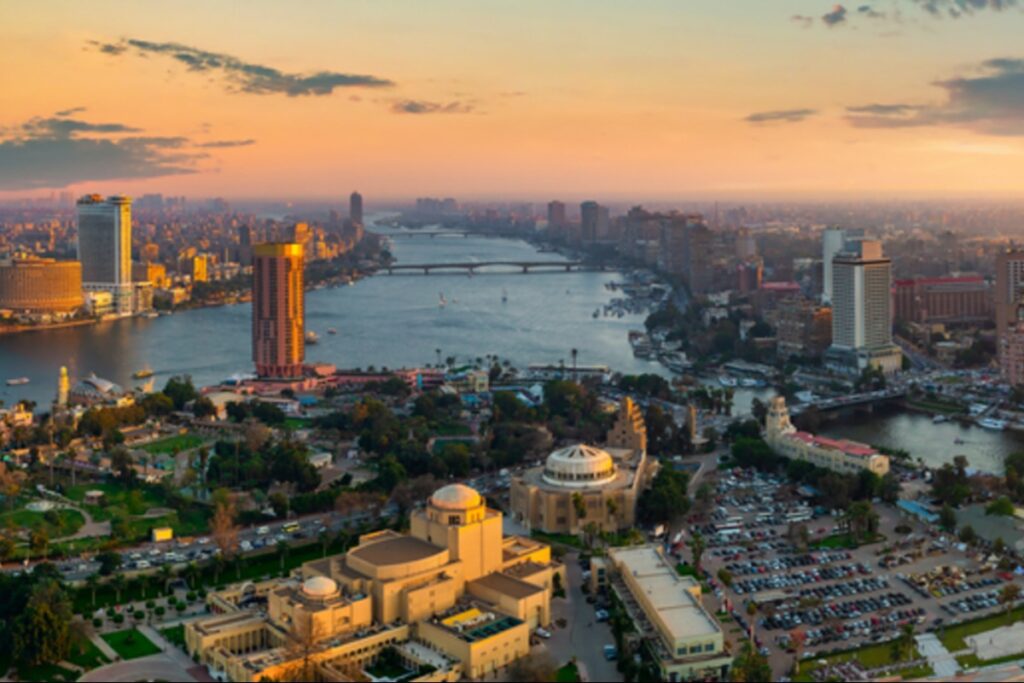Egypt’s Fiscal Fortunes: Surging Budget Surplus and Economic Headlines for 2023/2024
Egypt has recorded a remarkable fiscal achievement in the first nine months of the current fiscal year 2023/2024. The country’s budget surplus surged to EGP416 billion ($8.74 billion), which accounts for three percent of its GDP, as announced by the Minister of Finance, Mohamed Maait. This represents a significant increase from the EGP50 billion ($1.05 billion), or 0.5 percent of GDP, recorded during the same period in the previous fiscal year 2022/2023.
In a period marked by global economic challenges, including rising interest rates and inflation, Egypt’s financial health is noteworthy. The growth in budget surplus can be attributed to a combination of strategic financial management, revenue augmentation, and key agreements influencing the economy.
Key Contributions: The Ras El-Hekma Deal
One of the pivotal factors contributing to this fiscal growth is the deal between Egypt and the UAE’s Abu Dhabi Developmental Holding Company (ADQ). Signed in February, the Ras El-Hekma agreement injected EGP179 billion into Egypt’s General Treasury, amounting to roughly 1.3 percent of the country’s GDP. This was bolstered by the UAE’s $11 billion deposit at the Central Bank of Egypt (CBE) targeted for investments in the project, which forms part of a larger $35 billion financing arrangement.
Revenue Growth: A Closer Look
Over the past nine months, Egypt’s general state revenues experienced a substantial boost of 57.1 percent, reaching over EGP1.45 trillion. Even when excluding the Ras El-Hekma deal proceeds, the revenue growth stands at an impressive 38 percent.
Minister Maait highlighted that non-tax revenues surged by 122.9 percent. Tax revenues also crossed the EGP1 trillion mark, representing 41.2 percent of GDP. These revenue gains reflect the benefits of the government’s digitization initiatives and an expanded tax base, implemented without adding extra burdens on citizens or investors from July 2023 to March 2024. Additionally, non-sovereign tax revenues grew by 32 percent, while sovereign tax revenues increased by 83 percent.
Controlled Expenditures Amid Global Crises
General state expenditures also rose to EGP2.3 trillion, marking an annual growth rate of 50.8 percent. This increase stems from higher interest rates and enhanced spending on social protection, support, and wages. Despite these growing expenditures, the government has successfully contained the overall deficit rate at 5.42 percent of GDP, slightly above last year’s 5.40 percent.
Egypt aims to mitigate its debt service bill to 30 percent of general expenditures in the medium term. This forms part of a broader strategy to reduce the debt ratio to 80 percent by June 2027.
Strategic Investments in Education and Health
Amidst these financial maneuvers, the government has maintained significant investments in crucial sectors. Over the past nine months, the education sector received EGP180 billion, while the health sector was allocated EGP125 billion. Actual spending on support, grants, and social benefits increased by 33.9 percent to ease inflationary pressures on low- and middle-income households.
Social Support and Benefits
The General Treasury has also addressed due payments, including EGP135 billion to the Social Insurance and Pensions Fund, EGP69 billion for subsidized goods support, and EGP24 billion for the “Dignity and Solidarity” program. These dues saw a growth of 44 percent compared to the previous year. Moreover, wage expenditures increased by 74.6 percent, aiding in the implementation of special social packages designed to alleviate financial burdens on state employees.
Egypt’s fiscal trajectory appears promising, driven by strategic investments, enhanced revenues, and judicious financial management. As the nation continues to navigate global economic uncertainties, these indicators suggest a robust foundation for further economic stability and growth.
